Saint of the Day – 14 August – St Maximillian Kolbe OFM Conv – “MARTYR of Charity” and “Apostle of Consecration to Mary”- Born Maksymilian Maria Kolbe(7 January 1894 at Zdunska Wola, Poland as Raymond Kolbe – 14 August 1941 by lethal carbonic acid injection after three weeks of starvation and dehydration at the Auschwitz, Poland death camp). His body was burned in the ovens and the ashes scattered. Some relics have been preserved and distributed by the friars at Niepokalanów, Poland. He was Beatified on 17 October 1971 by Pope Paul VI – his beatification miracles include the July 1948 cure of intestinal tuberculosis of Angela Testoni and August 1950 cure of calcification of the arteries/sclerosis of Francis Ranier. He was Canonised on 10 October 1982 by St Pope John Paul II, who declared him a ‘Martyr of Charity.’ Patronages – drug addicts, political prisoners, families, journalists, prisoners, amateur radio, the pro-life movement, Esperanto. St John Paul II declared him “The Patron Saint of Our Difficult Century”. Due to Kolbe’s efforts to promote consecration and entrustment to Mary, he is known as the “Apostle of Consecration to Mary”.
Childhood
Maximilian Kolbe was born on 8 January 1894 in Zduńska Wola, in the Kingdom of Poland, which was a part of the Russian Empire, the second son of weaver Julius Kolbe and midwife Maria Dąbrowska. His father was an ethnic German and his mother was Polish. He had four brothers.
Kolbe’s life was strongly influenced in 1906 by a childhood vision of the Virgin Mary. He later described this incident: “That night I asked the Mother of God what was to become of me. Then she came to me holding two crowns, one white, the other red. She asked me if I was willing to accept either of these crowns. The white one meant that I should persevere in purity and the red that I should become a martyr. I said that I would accept them both.”
Franciscan Friar
In 1907, Kolbe and his elder brother Francis joined the Conventual Franciscans. They enrolled at the Conventual Franciscan minor seminary in Lwow later that year. In 1910, Kolbe was allowed to enter the novitiate, where he was given the religious name Maximilian. He professed his first vows in 1911 and final vows in 1914, adopting the additional name of Maria. He was sent to Rome in 1912, where he attended the Pontifical Gregorian University. He earned a doctorate in philosophy in 1915 there. From 1915 he continued his studies at the Pontifical University of St Bonaventure where he earned a doctorate in theology in 1919 or 1922 (sources vary). He was active in the consecration and entrustment to Mary. During his time as a student, he witnessed vehement demonstrations against Popes St. Pius X and Benedict XV in Rome during an anniversary celebration by the Freemasons. According to Kolbe:
“They placed the black standard of the “Giordano Brunisti” under the windows of the Vatican. On this standard the archangel, St Michael, was depicted lying under the feet of the triumphant Lucifer. At the same time, countless pamphlets were distributed to the people in which the Holy Father was attacked shamefully.”
Soon afterward, Kolbe organised the Militia Immaculatae (Army of the Immaculate One), to work for conversion of sinners and enemies of the Catholic Church, specifically the Freemasons, through the intercession of the Virgin Mary. So serious was Kolbe about this goal that he added to the Miraculous Medal prayer:
“O Mary, conceived without sin, pray for us who have recourse to thee. And for all those who do not have recourse to thee; especially the Masons and all those recommended to thee.”
In 1918, Kolbe was ordained a priest. In July 1919 he returned to the newly independent Poland, where he was active in promoting the veneration of the Immaculate Virgin Mary. He was strongly opposed to leftist – in particular, communist – movements. From 1919 to 1922 he taught at the Kraków seminary. Around that time, as well as earlier in Rome, he suffered from tuberculosis, which forced him to take a lengthy leave of absence from his teaching duties. In January 1922 he founded the monthly periodical Rycerz Niepokalanej (Knight of the Immaculate), a devotional publication based on French Le Messager du Coeur de Jesus (Messenger of the Heart of Jesus). From 1922 to 1926 he operated a religious publishing press in Grodno. As his activities grew in scope, in 1927 he founded a new Conventual Franciscan monastery at Niepokalanów near Warsaw, which became a major religious publishing center. A junior seminary was opened there two years later.
Between 1930 and 1936, Kolbe undertook a series of missions to East Asia. At first, he arrived in Shanghai, China but failed to gather a following there. Next, he moved to Japan, where by 1931 he founded a monastery at the outskirts of Nagasaki (it later gained a novitiate and a seminary) and started publishing a Japanese edition of the Knight of the Immaculate. The monastery he founded remains prominent in the Roman Catholic Church in Japan. Kolbe built the monastery on a mountainside that, according to Shinto beliefs, was not the side best suited to be in harmony with nature. When the atomic bomb was dropped on Nagasaki, Kolbe’s monastery was saved because the other side of the mountain took the main force of the blast. In mid-1932 he left Japan for Malabar, India, where he founded another monastery; this one however closed after a while. Meanwhile, the monastery at Niepokalanów began in his absence to publish the daily newspaper, Mały Dziennik (The Little Daily), in alliance with the political group, the National Radical Camp (Obóz Narodowo Radykalny). This publication reached a circulation of 137,000, and nearly double that, 225,000, on weekends.

Father Maximilian Kolbe is pictured in an undated file photo. The Polish priest, who gave his life in place of a young father condemned to execution, was declared a saint by the pope three years later. St. Maximilian Kolbe was among the first of the 474 men and women Pope John Paul II canonized in the last 25 years. (CNS file photo) (Aug. 28, 2003) See POPE25-SAINTS Aug. 28, 2003. (b/w only)
Death at Auschwitz
After the outbreak of World War II, which started with the invasion of Poland by Germany, Kolbe was one of the few brothers who remained in the monastery, where he organised a temporary hospital. After the town was captured by the Germans, he was briefly arrested by them on 19 September 1939 but released on 8 December. He refused to sign the Deutsche Volksliste, which would have given him rights similar to those of German citizens in exchange for recognising his German ancestry. Upon his release he continued work at his monastery, where he and other monks provided shelter to refugees from Greater Poland, including 2,000 Jews whom he hid from German persecution in their friary in Niepokalanów. Kolbe also received permission to continue publishing religious works, though significantly reduced in scope. The monastery thus continued to act as a publishing house, issuing a number of anti-Nazi German publications. On 17 February 1941, the monastery was shut down by the German authorities. That day Kolbe and four others were arrested by the German Gestapo and imprisoned in the Pawiak prison. On 28 May, he was transferred to Auschwitz as prisoner #16670.
Continuing to act as a priest, Kolbe was subjected to violent harassment, including beating and lashings and once had to be smuggled to a prison hospital by friendly inmates. At the end of July 1941, three prisoners disappeared from the camp, prompting SS-Hauptsturmführer Karl Fritzsch, the deputy camp commander, to pick 10 men to be starved to death in an underground bunker to deter further escape attempts. When one of the selected men, Franciszek Gajowniczek, cried out, “My wife! My children!”, Kolbe volunteered to take his place. (The last pic below with St John Paul is at the Canonisation of St Maximillian).
According to an eye witness, an assistant janitor at that time, in his prison cell, Kolbe led the prisoners in prayer to Our Lady. Each time the guards checked on him, he was standing or kneeling in the middle of the cell and looking calmly at those who entered. After two weeks of dehydration and starvation, only Kolbe remained alive. “The guards wanted the bunker emptied, so they gave Kolbe a lethal injection of carbolic acid. Kolbe is said to have raised his left arm and calmly waited for the deadly injection.” His remains were cremated on 15 August, the feast day of the Assumption of Mary.
Kolbe’s influence has found fertile ground in his own Order of Conventual Franciscan friars, in the form of continued existence of the Militia Immaculatae movement. In recent years new religious and secular institutes have been founded, inspired from this spiritual way. Among these the Missionaries of the Immaculate Mary – Father Kolbe, the Franciscan Friars of Mary Immaculate, and a parallel congregation of Religious Sisters, and others. The Franciscan Friars of Mary Immaculate are even taught basic Polish so they can sing the traditional hymns sung by Kolbe, in the saint’s native tongue. According to the friars,
“Our patron, St. Maximilian Kolbe, inspires us with his unique Mariology and apostolic mission, which is to bring all souls to the Sacred Heart of Christ through the Immaculate Heart of Mary, Christ’s most pure, efficient and holy instrument of evangelisation – especially those most estranged from the Church.”
Kolbe’s views into Marian theology echo today through their influence on Vatican II. His image may be found in churches across Europe. Several churches in Poland are under his patronage, such as the Sanctuary of Saint Maxymilian in Zduńska Wola or the Church of Saint Maxymilian Kolbe in Szczecin. A museum, Museum of St. Maximilian Kolbe “There was a Man”, was opened in Niepokalanów in 1998.
In 1963 Rolf Hochhuth published a play significantly influenced by Kolbe’s life and dedicated to him, The Deputy. In 2000, the National Conference of Catholic Bishops (U.S.) designated Marytown, home to a community of Conventual Franciscan friars, as the National Shrine of St. Maximilian Kolbe. Marytown is located in Libertyville, Illinois, and also features the Kolbe Holocaust Exhibit. In 1991, Krzysztof Zanussi released a Polish film about the life of Kolbe. The Polish Senate declared the year 2011 to be the year of St Maximilian Kolbe.
First-class relics of Kolbe exist, in the form of hairs from his head and beard, preserved without his knowledge by two friars at Niepokalanów who served as barbers in his friary between 1930 and 1941. Since his beatification in 1971, more than 1,000 such relics have been distributed around the world for public veneration. Second-class relics such as his personal effects, clothing and liturgical vestments, are preserved in his monastery cell and in a chapel at Niepokalanów and may be viewed by visitors.
St Maximillian Pray for us!
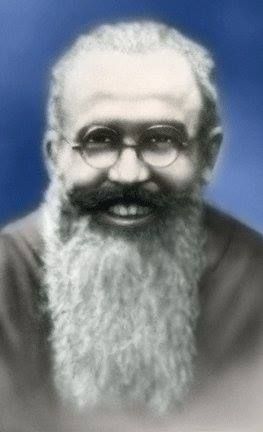
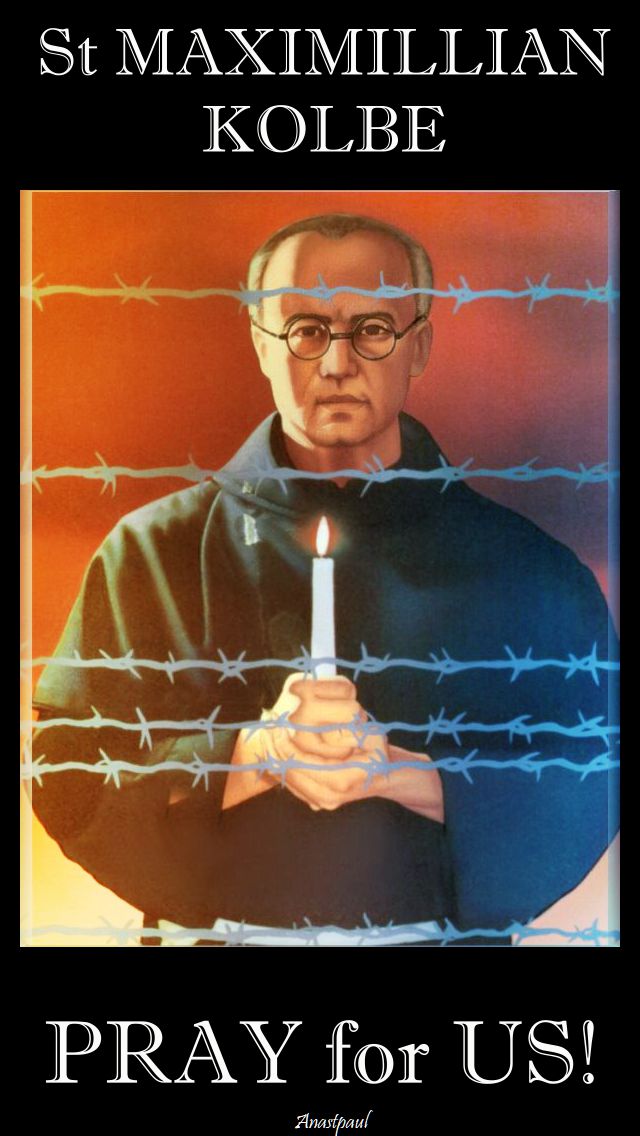
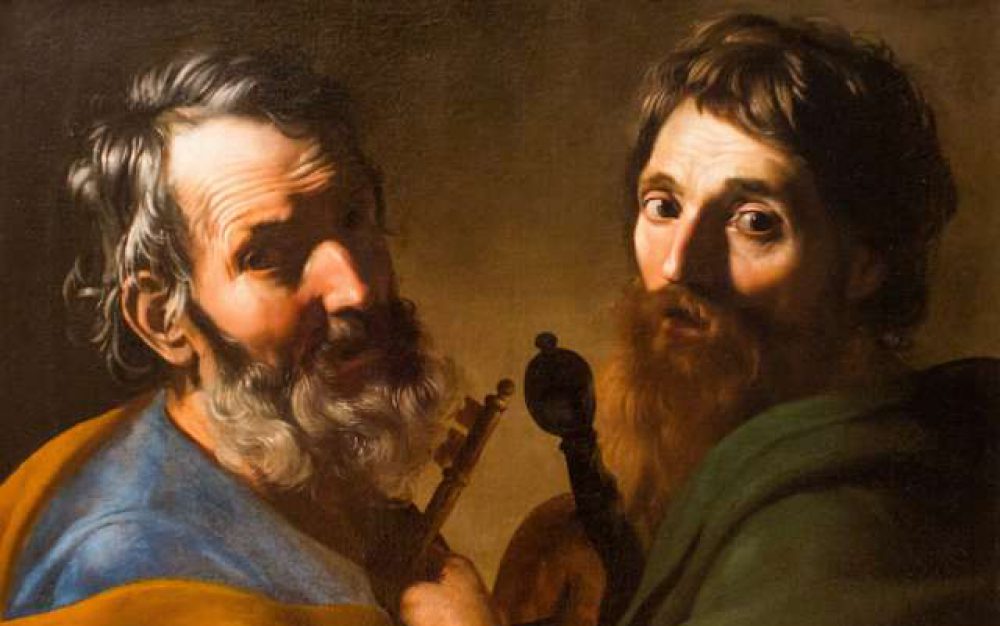


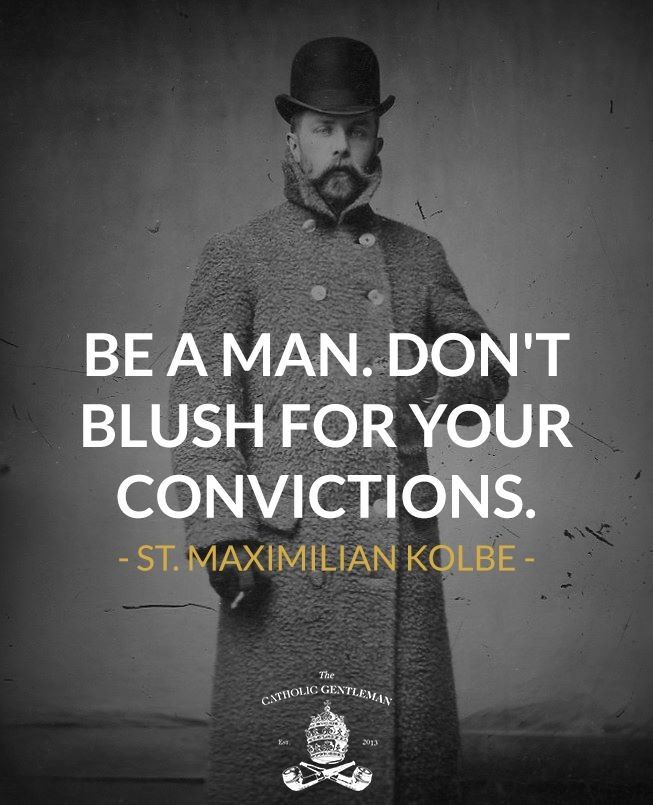


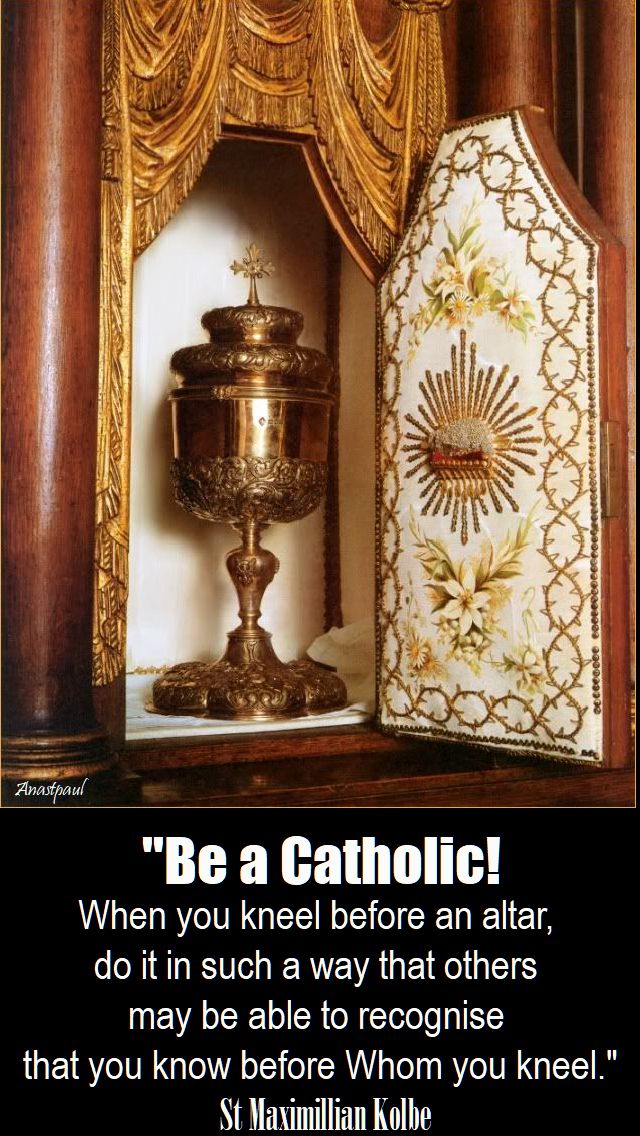
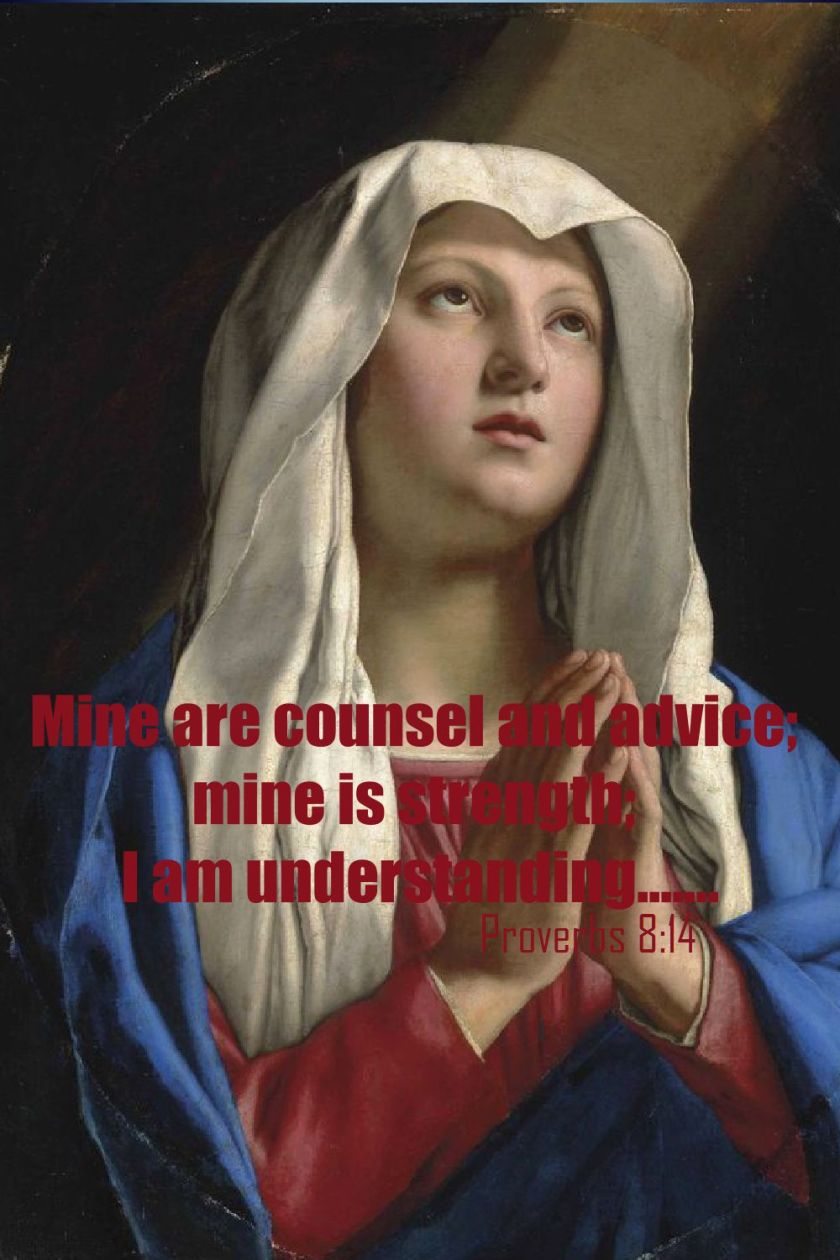
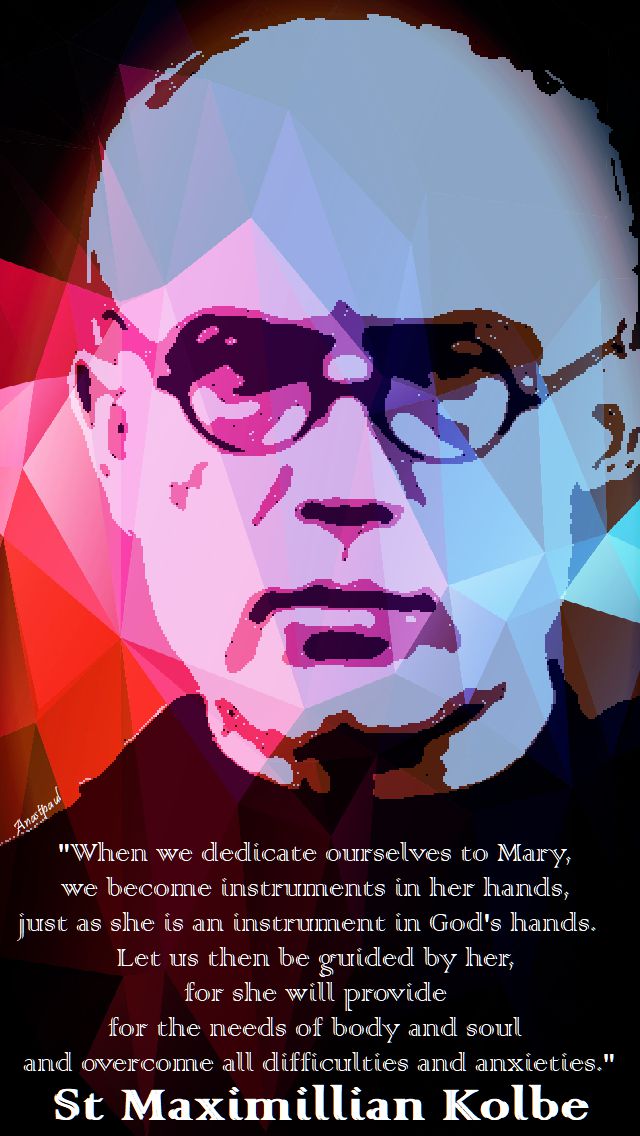
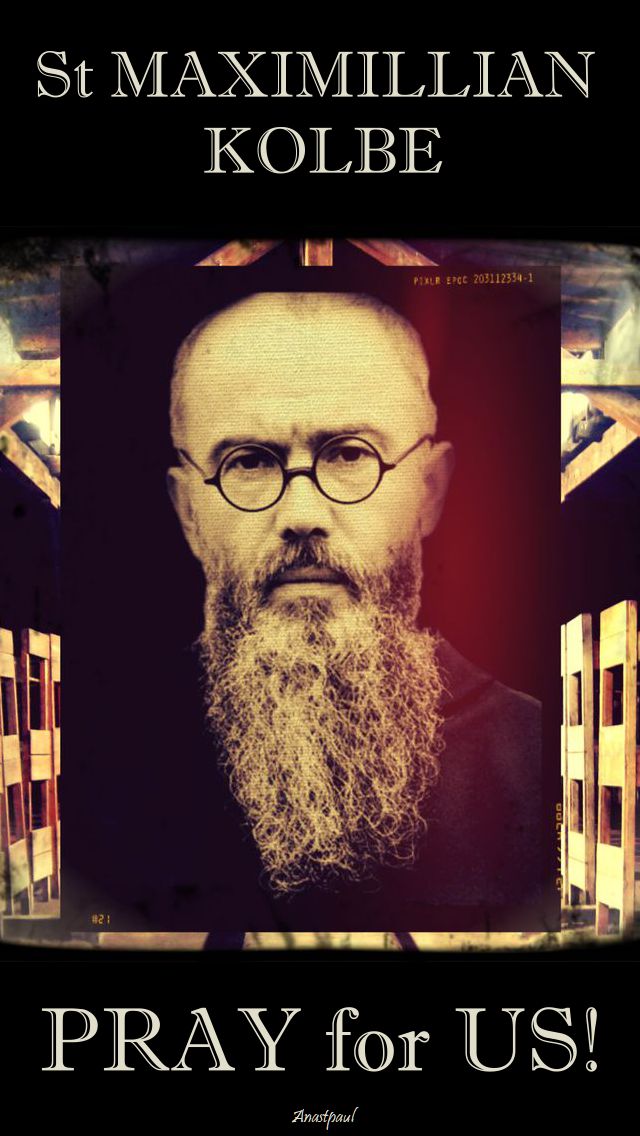





























You must be logged in to post a comment.